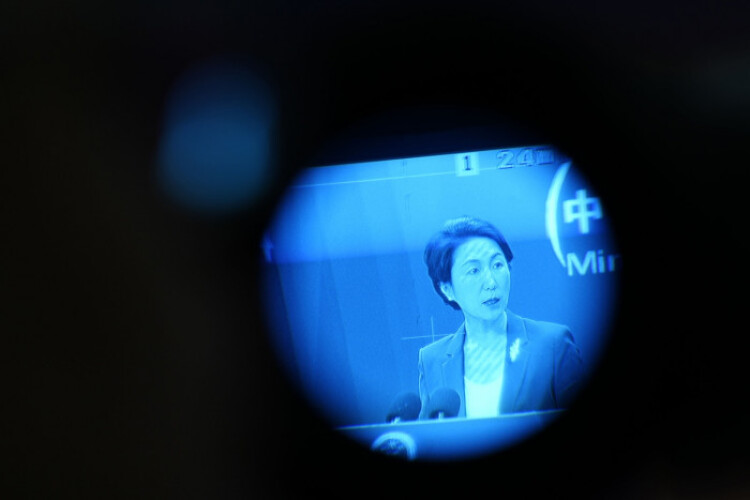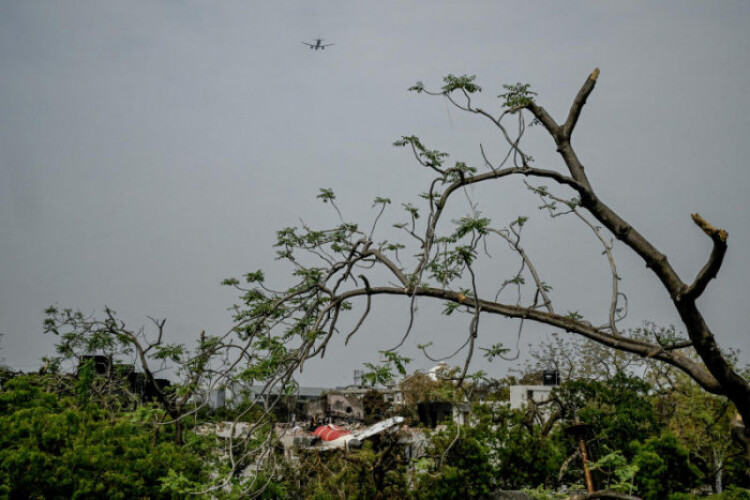
Chinese authorities have been harassing Chinese citizens living in Japan who have engaged in activities that Beijing considers subversive, a report by Human Rights Watch said Thursday.
The organisation’s interviews with 25 people, including those from Xinjiang, Tibet and Inner Mongolia, revealed that Chinese police or the Chinese Embassy in Japan have contacted them or their relatives in China, pressuring them to end their activities in Japan.
The interviewees have participated in nonviolent activities, such as organising public events to draw attention to human rights abuses in Xinjiang, promoting Tibetan culture, and hosting book discussions featuring works by Inner Mongolian activists, the organisation said.
“The Japanese government should call on the Chinese government to end its surveillance and threats against those living in Japan,” the group said in the report, urging Japan to establish a system to report such incidents and provide protection.
China denied engaging in such transnational repression activities, with Foreign Ministry spokeswoman Mao Ning saying at a press conference, “All our actions are carried out in accordance with laws and regulations.”
The report said a woman was arrested in 2023 upon returning to Hong Kong for posting pro-democratic comments online during her studies in Japan, while another individual who promoted Tibetan culture in Japan was told to return to Tibet to renew their passport.
A man from Xinjiang said that when he received a call from a relative asking him to return home a police officer came on the line and told him he “could not guarantee what would happen to your family” unless he complied with his relative’s request.
He was later contacted on a messaging app by a police officer telling him to provide information about activists in Japan, Human Rights Watch said.
Teppei Kasai, Asia programme officer at Human Rights Watch, said, “Japan should promptly establish a national system to investigate cases of transnational repression with appropriate safeguards for individuals’ privacy.”
The organisation’s interviews with 25 people, including those from Xinjiang, Tibet and Inner Mongolia, revealed that Chinese police or the Chinese Embassy in Japan have contacted them or their relatives in China, pressuring them to end their activities in Japan.
The interviewees have participated in nonviolent activities, such as organising public events to draw attention to human rights abuses in Xinjiang, promoting Tibetan culture, and hosting book discussions featuring works by Inner Mongolian activists, the organisation said.
“The Japanese government should call on the Chinese government to end its surveillance and threats against those living in Japan,” the group said in the report, urging Japan to establish a system to report such incidents and provide protection.
China denied engaging in such transnational repression activities, with Foreign Ministry spokeswoman Mao Ning saying at a press conference, “All our actions are carried out in accordance with laws and regulations.”
The report said a woman was arrested in 2023 upon returning to Hong Kong for posting pro-democratic comments online during her studies in Japan, while another individual who promoted Tibetan culture in Japan was told to return to Tibet to renew their passport.
A man from Xinjiang said that when he received a call from a relative asking him to return home a police officer came on the line and told him he “could not guarantee what would happen to your family” unless he complied with his relative’s request.
He was later contacted on a messaging app by a police officer telling him to provide information about activists in Japan, Human Rights Watch said.
Teppei Kasai, Asia programme officer at Human Rights Watch, said, “Japan should promptly establish a national system to investigate cases of transnational repression with appropriate safeguards for individuals’ privacy.”










